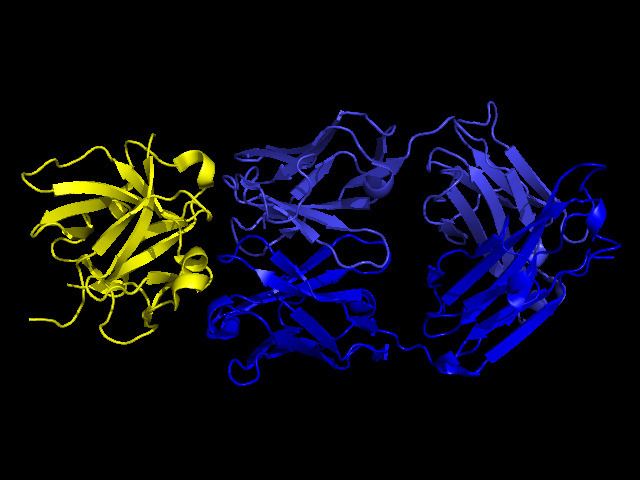Type Whole antibody Target IL-1β | Trade names Ilaris | |
 | ||
AHFS/Drugs.com Consumer Drug Information License data EU EMA: IlarisUS FDA: Canakinumab | ||
Canakinumab (INN, trade name Ilaris, previously ACZ885) is a human monoclonal antibody targeted at interleukin-1 beta. It has no cross-reactivity with other members of the interleukin-1 family, including interleukin-1 alpha.
Canakinumab was approved for the treatment of cryopyrin-associated periodic syndromes (CAPS) by the U.S. Food and Drug Administration (FDA) on June 2009 and by the European Medicines Agency in October 2009. CAPS is a spectrum of autoinflammatory syndromes including familial cold autoinflammatory syndrome, Muckle–Wells syndrome, and neonatal-onset multisystem inflammatory disease. On September 2016, FDA approved the use of canakinumab on 3 additional rare and serious auto-inflammatory diseases: Tumor Necrosis Factor Receptor Associated Periodic Syndrome (TRAPS), Hyperimmunoglobulin D Syndrome (HIDS)/Mevalonate Kinase Deficiency (MKD) and Familial Mediterranean Fever (FMF).
Canakinumab was being developed by Novartis for the treatment of rheumatoid arthritis but this trial was completed in October 2009. Canakinumab is also in phase I clinical trials as a possible treatment for chronic obstructive pulmonary disease, gout and coronary artery disease. It is also in trials for Schizophrenia. In gout it may result in better outcomes than a low dose of a steroid but costs five thousand times more.
